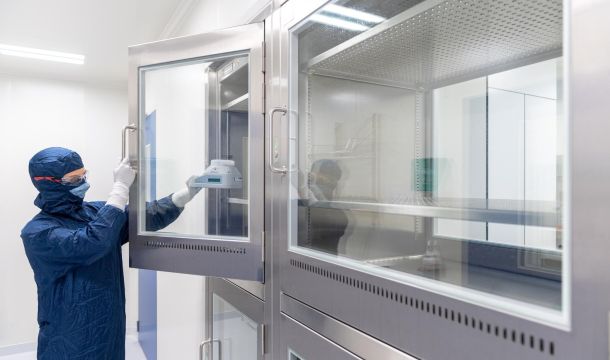OSHA Requires More Employers to Determine Whether Employee COVID-19 Cases are Work-Related
Remember when we told you that only health-care employers, corrections facilities, and emergency-response providers were required by OSHA to determine whether an employee’s COVID-19 was work-related? Well, other types of businesses had better pay attention because OSHA has issued some new guidance that expands the recording of COVID-19 cases.
In new interim guidance issued May 19, 2020, OSHA now requires all employers who are required to keep OSHA injury and illness logs, not just health-care employers, corrections facilities, and emergency-response providers, to make a determination if an employee’s COVID-19 illness is work related.
Under OSHA’s recordkeeping requirements, COVID-19 is a recordable illness, and thus employers are responsible for recording cases of COVID-19, if:
- The case is a confirmed case of COVID-19, as defined by the Centers for Disease Control and Prevention (CDC);
- The case is work-related, as defined by 29 CFR § 1904.5; and
- The case involves one or more of the general recording criteria set forth in 29 CFR § 1904.7 (such as death, days away from work, restricted work or transfer to another job, medical treatment beyond first aid, or loss of consciousness).
OSHA recognizes that it may be difficult for employers to determine if a case of COVID-9 is “work-related.” Therefore, OSHA is exercising enforcement discretion to assess employers’ efforts in making work-related determinations. In determining whether an employer has complied with this obligation and made a reasonable determination of work-relatedness, OSHA CSHOs will apply the following considerations:
- The reasonableness of the employer’s investigation into work-relatedness. Employers, especially small employers, should not be expected to undertake extensive medical inquiries, given employee privacy concerns and most employers’ lack of expertise in this area. It is sufficient in most circumstances for the employer, when it learns of an employee’s COVID-19 illness, (1) to ask the employee how he believes he contracted the COVID-19 illness; (2) while respecting employee privacy, discuss with the employee his work and out-of-work activities that may have led to the COVID-19 illness; and (3) review the employee’s work environment for potential SARS-CoV-2 exposure. The review in (3) should be informed by any other instances of workers in that environment contracting COVID-19 illness.
- The evidence available to the employer. The evidence that a COVID-19 illness was work-related should be considered based on the information reasonably available to the employer at the time it made its work-relatedness determination. If the employer later learns more information related to an employee’s COVID-19 illness, then that information should be taken into account as well in determining whether an employer made a reasonable work-relatedness determination.
- The evidence that a COVID-19 illness was contracted at work. CSHOs should take into account all reasonably available evidence, in the manner described above, to determine whether an employer has complied with its recording obligation. This cannot be reduced to a ready formula, but certain types of evidence may weigh in favor of or against work-relatedness. For instance:
o COVID-19 illnesses are likely work-related when several cases develop among workers who work closely together and there is no alternative explanation.
o An employee’s COVID-19 illness is likely work-related if it is contracted shortly after lengthy, close exposure to a particular customer or coworker who has a confirmed case of COVID-19 and there is no alternative explanation.
o An employee’s COVID-19 illness is likely work-related if his job duties include having frequent, close exposure to the general public in a locality with ongoing community transmission and there is no alternative explanation.
o An employee’s COVID-19 illness is likely not work-related if she is the only worker to contract COVID-19 in her vicinity and her job duties do not include having frequent contact with the general public, regardless of the rate of community spread.
o An employee’s COVID-19 illness is likely not work-related if he, outside the workplace, closely and frequently associates with someone (e.g., a family member, significant other, or close friend) who (1) has COVID-19; (2) is not a coworker, and (3) exposes the employee during the period in which the individual is likely infectious.
o CSHOs should give due weight to any evidence of causation, pertaining to the employee illness at issue, provided by medical providers, public health authorities, or the employee herself.
If, after the reasonable and good faith inquiry described above, the employer cannot determine whether it is more likely than not that exposure in the workplace played a causal role with respect to a particular case of COVID-19, the employer does not need to record that COVID-19 illness. In all events, it is important as a matter of worker health and safety, as well as public health, for an employer to examine COVID-19 cases among workers and respond appropriately to protect workers, regardless of whether a case is ultimately determined to be work-related.

Kathleen J. Jennings is a former principal in the Atlanta office of Wimberly, Lawson, Steckel, Schneider, & Stine, P.C. She defends employers in employment matters, such as sexual harassment, discrimination, Wage and Hour, OSHA, restrictive covenants, and other employment litigation and provides training and counseling to employers in employment matters.
Related Content
Get Email Updates
Recent Content

TPS Update (as of 2/6/2026)

Job Interviews Can Be a Good Selection Device

Suggestions on How to Diffuse a Tense Situation

Employers Blame Unions for Recent Shutdowns

$27 Million Verdict against Employer on Disability Discrimination over Refusal to Return Employee to Work



